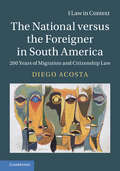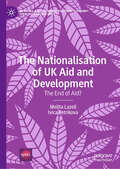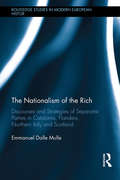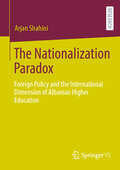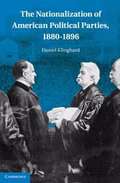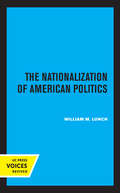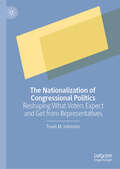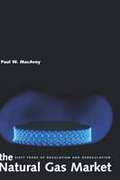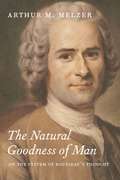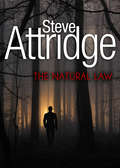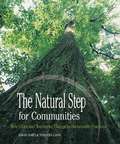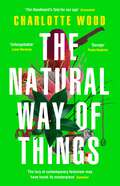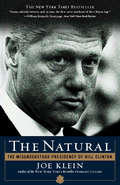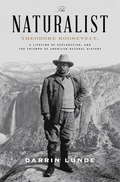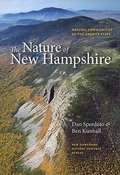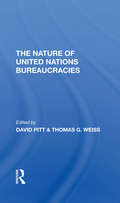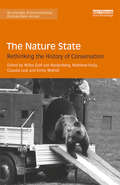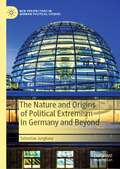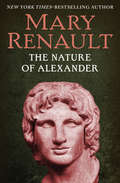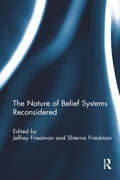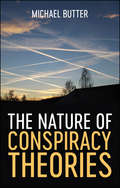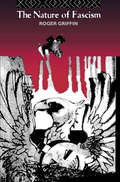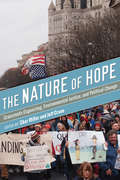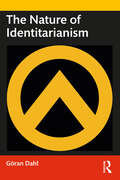- Table View
- List View
The National versus the Foreigner in South America: 200 Years of Migration and Citizenship Law (Law in Context )
by Diego AcostaSince the turn of the century, South American governments and regional organisations have adopted the world's most open discourse on migration and citizenship. At a time when restrictive choices were becoming increasingly predominant around the world, South American policymakers presented their discourse as being both an innovative and exceptional 'new paradigm' and part of a morally superior, avant-garde path in policymaking. <P><P>This book provides a critical examination of the South American legal framework through a historical and comparative analysis. Diego Acosta uses this analysis to assess whether the laws are truly innovative and exceptional, as well as evaluating their feasibility, strengths and weaknesses. By analysing the legal construction of the national and the foreigner in ten South American countries during the last two centuries, he demonstrates how different citizenship and migration laws have functioned, as well as showing why states have opted for certain regulation choices, and the consequence of these choices for state- and nation-building in the continent. An invaluable insight for anyone interested in global migration and citizenship discussions.<P> Offers in depth coverage and critical analysis of the present legal regulations of migration and citizenship law.<P> Discusses the extremely interesting principles behind South American migration and citizenship laws, including universal citizenship, the non-criminalisation of irregular migration, and the right to migrate as fundamental.<P> Features analysis of ten South American countries across two centuries which uncovers wider transnational trends and legal mechanisms.<P>
The Nationalisation of UK Aid and Development: The End of Aid? (Building a Sustainable Political Economy: SPERI Research & Policy)
by Ivica Petrikova Melita LazellSince the creation of the Department for International Development, the purpose of UK development policy and aid has changed significantly. This book provides a comprehensive evaluation of these changes, their causes, and their implications. It argues that UK development aid as an act of solidarity, economic justice, or redistribution, which has always been undermined by donor interest and colonialism, has been abolished. The authors present a new framework for understanding the UK’s current approach to development policy and aid, the ‘nationalisation’ of aid, which prioritises narrow domestic commercial and political interests at the expense of sustainable development and the UK’s international reputation. Based on new quantitative and qualitative data, the book offers a nuanced and comprehensive exploration of the UK's approach to aid and development, contributing to broader discussions on the evolving nature of development assistance and its implications. With a combination of rigorous research methods and insightful analysis, it not only advances scholarly understanding within the fields of Politics, International Relations, Development Studies, and International Political Economy, but also provides practical guidance for policymakers and practitioners seeking to navigate the complexities of contemporary development assistance.
The Nationalism of the Rich: Discourses and Strategies of Separatist Parties in Catalonia, Flanders, Northern Italy and Scotland (Routledge Studies in Modern European History)
by Emmanuel Dalle MulleBased on rigorous analysis of the propaganda of five Western European separatist parties, this book provides in-depth examination of the ‘nationalism of the rich’, defined as a type of nationalist discourse that seeks to end the economic ‘exploitation’ suffered by a group of people represented as a wealthy nation and supposedly carried out by the populations of poorer regions and/or by inefficient state administrations. It shows that the nationalism of the rich represents a new phenomenon peculiar to societies that have set in place complex systems of wealth redistribution and adopted economic growth as the main principle of government legitimacy. The book argues that the nationalism of the rich can be seen as a rhetorical strategy portraying independent statehood as a solution to the dilemma between solidarity and efficiency arisen in Western Europe since the end of the Glorious Thirties. It further suggests that its formation can be best explained by the following combination of factors: (1) the creation, from the end of the Second World War, of extensive forms of automatic redistribution to a scale previously unprecedented; (2) the beginning, from the mid-1970s, of an era of ‘permanent austerity’ exacerbated, in specific contexts, by situations of serious public policy failure; (3) the existence of national/cultural cleavages roughly squaring with uneven development and sharp income differentials among territorial areas of a given state.
The Nationalization Paradox: Foreign Policy and the International Dimension of Albanian Higher Education
by Arjan ShahiniThe study illustrates the paradoxical relationship between nationalization and internationalization in the case of Albanian higher education. It demonstrates how global transformational processes and foreign policy have impacted the international dimension of higher education as a nation-building institution. The analysis considers the effect of foreign policy and the interactions between the state, the university, and the cultural elite. The study applies the concept of causal mechanisms as an analytical and narrative device. Foreign policy analysis is framed within an international patronage regime. The international dimension is defined in terms of international exchanges, policy borrowing, and policy discourse. The higher education policy areas it investigates are education policy, governance, academic management, curriculum, and academic mobility. The interdisciplinary analytical and methodological approaches applied here were drawn from the transnational history of education and comparative-historical analysis.
The Nationalization of American Political Parties, 1880-1896
by Daniel KlinghardThis book investigates the creation of the first truly nationalized party organizations in the United States in the late nineteenth century, an innovation that reversed the parties' traditional privileging of state and local interests in nominating campaigns and the conduct of national campaigns. Between 1880 and 1896, party elites crafted a defense of these national organizations that charted the theoretical parameters of American party development into the twentieth century. With empowered national committees and a new understanding of the parties' role in the political system, national party leaders dominated American politics in new ways, renewed the parties' legitimacy in an increasingly pluralistic and nationalized political environment, and thus maintained their relevance throughout the twentieth century. The new organizations particularly served the interests of presidents and presidential candidates, and the little-studied presidencies of the late nineteenth century demonstrate the first stirrings of modern presidential party leadership.
The Nationalization of American Politics
by William M. LunchThis title is part of UC Press's Voices Revived program, which commemorates University of California Press’s mission to seek out and cultivate the brightest minds and give them voice, reach, and impact. Drawing on a backlist dating to 1893, Voices Revived makes high-quality, peer-reviewed scholarship accessible once again using print-on-demand technology. This title was originally published in 1987.
The Nationalization of Congressional Politics: Reshaping What Voters Expect and Get from Representatives
by Travis M. JohnstonThis book examines the consequences of nationalization for members of Congress and the voters they represent. Constituents have come to evaluate their elected representatives on the basis of their national policy records. Although the public expects the government to tackle important problems, many of the most engaged voters are also the most uncompromising—a fact that carries important legislative implications. During campaigns, candidates reflect these expectations back to voters by emphasizing broad policy issues that are largely divorced from local conditions. Meanwhile, officeholders carefully navigate the legislative process to avoid provoking national policy activists in and outside the district. Taken together, the book's study of mass opinion and elite behavior shows how the nationalization of U.S. politics creates a legislative conundrum for Congress. The impulse to focus on national policy and a refusal to compromise one's "values" are often incompatible goals, resulting in legislative gridlock with little hope for relief.
The Natural Gas Market: Sixty Years of Regulation and Deregulation
by Paul W. MacavoySix decades of efforts by federal agencies to regulate the natural gas industry in the U. S. have failed, says the author of this important book. Paul MacAvoy shows that no one has gained from public control of the natural gas industry, and he argues that all participants would gain from complete deregulation. For regulated and about-to-be-regulated industries, the costly history of gas regulation is a tale to heed well.
The Natural Goodness of Man: On the System of Rousseau's Thought
by Arthur M. MelzerThe true key to all the perplexities of the human condition, Rousseau boldly claims, is the “natural goodness of man.” It is also the key to his own notoriously contradictory writings, which, he insists, are actually the disassembled parts of a rigorous philosophical system rooted in that fundamental principle. What if this problematic claim—so often repeated, but as often dismissed—were resolutely followed and explored? Arthur M. Melzer adopts this approach in The Natural Goodness of Man. The first two parts of the book restore the original, revolutionary significance of this now time-worn principle and examine the arguments Rousseau offers in proof of it. The final section unfolds and explains Rousseau’s programmatic thought, especially the Social Contract, as a precise solution to the human problem as redefined by the principle of natural goodness. The result is a systematic reconstruction of Rousseau’s philosophy that discloses with unparalleled clarity both the complex weave of his argument and the majestic unity of his vision. Melzer persuasively resolves one after another of the famous Rousseauian paradoxes–enlarging, in the process, our understanding of modern philosophy and politics. Engagingly and lucidly written, The Natural Goodness of Man will be of interest to general as well as scholarly readers.
The Natural Law
by Steve AttridgePart-time PI Paul Rook—the “brilliantly original detective”—returns in this high-concept, thrilling sequel to Philosophical Investigations (Robert Foster, bestselling author of The Lunar Code). Dr. Paul Rook’s life is a mess: he drinks too much, his wife has left him for his best friend, and he spends his days teaching philosophy to students who aren’t interested at all. Thankfully, he has another life—a sideline career as a private investigator. So when he meets Mary King, whose small-time criminal husband has been shot dead in an Istanbul hotel room, he gladly takes the case. Almost immediately a mysterious character, known only as Gladiator, begins to send text messages to Rook, warning him off the trail. As the messages continue, the body count starts to mount. Rook soon finds himself immersed in the murky world of crooked politicians, shady arms deals, and a web of criminals and cover-ups that extends further than he could ever have imagined . . .
The Natural Step for Communities
by Sarah James Torbjörn LahtiSustainability may seem like one more buzzword and cities and towns like the last places to change, but The Natural Step for Communities provides inspiring examples of communities that have made dramatic changes toward sustainability and explains how others can emulate their success.Chronicled in the book are towns like Övertorneå, whose government operations recently became 100 percent fossil fuel-free, demonstrating that unsustainable municipal practices really can be overhauled. Arguing that the process of introducing change--whether converting to renewable energy or designing compact development--is critical to success, the authors outline why well-intentioned proposals often fail to win community approval and why an integrated approach--not "single-issue" initiatives--can surmount challenges of conflicting priorities, scarce resources and turf battles.The book first clarifies the concept of sustainability, offering guiding principles--the Natural Step framework--that help identify sustainable action in any area. It then introduces the 60+ eco-municipalities of Sweden that have adopted changes to sustainable practices throughout municipal policies and operations. The third section explains how they did it and outlines how other communities in North America and elsewhere can do the same. Key to success is a democratic, "bottom-up" change process and clear guiding sustainability principles, such as the Natural Step framework.The book will appeal to both general readers wishing to understand better what sustainability means and practitioners interested in introducing or expanding sustainable development in their communities.Sarah James is the principal of a community planning consulting firm. She co-authored the American Planning Association's Planning for Sustainability Policy Guide and has published articles throughout the U.S. on this subject.Torbjörn Lahti was the planner for Sweden's first eco-municipality and is directing a five-year sustainable community demonstration project. He was instrumental in forming the Swedish National Association of Eco-municipalities.
The Natural Way of Things: From the Booker Prize-shortlisted author of Stone Yard Devotional
by Charlotte WoodFrom the author of the Booker Prize-shortlisted novel Stone Yard Devotional'Savage: think Atwood in the outback'PAULA HAWKINS'An unforgettable reading experience'LIANE MORIARTY'Ferocious . . . recalls the early Elena Ferrante'NPR'A masterpiece'GUARDIAN'Devastating' ECONOMISTShe hears her own thick voice deep inside her ears when she says, 'I need to know where I am.'The man stands there, tall and narrow, hand still on the doorknob, surprised.He says, almost in sympathy, 'Oh, sweetie. You need to know what you are.'"Two women awaken from a drugged sleep to find themselves imprisoned in a broken-down property in the middle of a desert.Strangers to each other, they have no idea where they are or how they came to be there with eight other girls, their heads shaved, guarded by two inept yet vicious jailers.Doing hard labour under a sweltering sun, the prisoners soon learn what links them: in each girl's past is a sexual scandal with a powerful man.They pray for rescue but as the hours turn into days and the days into weeks and months, it becomes clear only the girls can rescue themselves.Praise for Charlotte Wood's Stone Yard DevotionalShortlisted for the Booker Prize 2024 'A beautiful, mature work that does not flinch from life'SUNDAY TIMES'A transfixing novel'FINANCIAL TIMES'A book about what it means to be good: simply and with great humility, it asks the big questions, leaving the reader feeling kinder, more brave, enlarged'ANNE ENRIGHT'I have rarely been so absorbed by a novel . . . A powerful, generous book'GUARDIAN
The Natural: The Misunderstood Presidency of Bill Clinton
by Joe KleinNovelist and political analyst Klein argues that for all the scandal and political disappointments, Clinton's two terms in office quietly made good times a little better and left no huge mess for the next tenant to clean up. Annotation c. Book News, Inc. , Portland, OR (booknews. com)
The Naturalist: Theodore Roosevelt, A Lifetime of Exploration, and the Triumph of American Natural History
by Darrin LundeA captivating new account of how Theodore Roosevelt’s lifelong passion for the natural world set the stage for America’s wildlife conservation movement and determined his legacy as a founding father of today’s museum naturalism No U.S. president is more popularly associated with nature and wildlife than is Theodore Roosevelt—prodigious hunter, tireless adventurer, and ardent conservationist. We think of him as a larger-than-life original, yet in The Naturalist, Darrin Lunde has firmly situated Roosevelt’s indomitable curiosity about the natural world in the tradition of museum naturalism. As a child, Roosevelt actively modeled himself on the men (including John James Audubon and Spencer F. Baird) who pioneered this key branch of biology by developing a taxonomy of the natural world—basing their work on the experiential study of nature. The impact that these scientists and their trailblazing methods had on Roosevelt shaped not only his audacious personality but his entire career, informing his work as a statesman and ultimately affecting generations of Americans’ relationship to this country’s wilderness. Drawing on Roosevelt’s diaries and travel journals as well as Lunde’s own role as a leading figure in museum naturalism today, The Naturalist reads Roosevelt through the lens of his love for nature. From his teenage collections of birds and small mammals to his time at Harvard and political rise, Roosevelt’s fascination with wildlife and exploration culminated in his triumphant expedition to Africa, a trip which he himself considered to be the apex of his varied life. With narrative verve, Lunde brings his singular experience to bear on our twenty-sixth president’s life and constructs a perceptively researched and insightful history that tracks Roosevelt’s maturation from exuberant boyhood hunter to vital champion of serious scientific inquiry.From the Hardcover edition.
The Nature Of New Hampshire: Natural Communities Of The Granite State
by Daniel Sperduto Ben KimballThis illuminating and instructive book explores New Hampshire’s stunning mosaic of natural communities. In photos, drawings, and accessible text, The Nature of New Hampshire takes you on a tour of landscapes as varied as alpine meadows, tidal marshes, riverbanks, forests, ponds, dunes, and cliffs. Readers will gain a new understanding and appreciation for the state’s exceptional natural heritage. Natural communities are recurring associations of plants and animals found in particular physical environments. They are the dynamic habitats in which native species live. Based on more than twenty years of ecological research, the New Hampshire Natural Heritage Bureau developed the classification of the nearly 200 natural community types presented in this essential guide. The communities are organized into eight categories: alpine and subalpine, rocky ground, forests, peatlands, swamps, marshes, river channels and floodplains, and seacoast. With gorgeous photographs, informative text, and recommended places to visit, The Nature of New Hampshire provides an important common language for conservation planning and informed land stewardship. Whether used as a field guide or an at-home resource, this book will help readers reconnect with their surroundings, and understand the places they value.
The Nature Of United Nations Bureaucracies (The\united Nations And Its Agencies Ser.)
by Thomas G Weiss David PittThis book concentrates on the bureaucratic aspects of the United Nation. It is intended to be educational, and indeed young people are intended to be a special audience. The book attempts to identify explanations for stability and initiative within international secretariats.
The Nature State: Rethinking the History of Conservation (Routledge Environmental Humanities)
by Matthew Kelly Claudia Leal Emily Wakild Wilko Graf HardenbergThis volume brings together case studies from around the globe (including China, Latin America, the Philippines, Namibia, India and Europe) to explore the history of nature conservation in the twentieth century. It seeks to highlight the state, a central actor in these efforts, which is often taken for granted, and establishes a novel concept – the nature state – as a means for exploring the historical formation of that portion of the state dedicated to managing and protecting nature. Following the Industrial Revolution and post-war exponential increase in human population and consumption, conservation in myriad forms has been one particularly visible way in which the government and its agencies have tried to control, manage or produce nature for reasons other than raw exploitation. Using an interdisciplinary approach and including case studies from across the globe, this edited collection brings together geographers, sociologists, anthropologists and historians in order to examine the degree to which sociopolitical regimes facilitate and shape the emergence and development of nature states. This innovative work marks an early intervention in the tentative turn towards the state in environmental history and will be of great interest to students and practitioners of environmental history, social anthropology and conservation studies.
The Nature and Origins of Political Extremism In Germany and Beyond (New Perspectives in German Political Studies)
by Sebastian JungkunzThis book provides a systematic overview of the prevalence, causes, and stability of left-wing and right-wing extremist attitudes in Germany between 1994 and 2017. It shows that there are many similarities between left-wing and right-wing extremists, both in terms of their ideologies and their individual experiences. Overall, these causes can be traced back to three factors: unmet individual needs (e.g., deprivation or disenchantment with politics), access to ideological narratives that promise simplified solutions to individual problems, and the larger social circumstances of life (e.g., transformation processes, unemployment, or immigration). Although extremist attitudes are relatively rare, they are also shown to be highly stable: once acquired, individuals are difficult to bring back onto the democratic path. This book is the first to systematically compare left-wing and right-wing extremist attitudes, to provide an intensive methodological contribution to the measurability of such attitudes, and to relate their causes and stability.
The Nature of Alexander
by Mary RenaultAn &“intriguing and invaluable&” biography of Alexander the Great by the novelist whose fiction redefined Ancient Greece (The New York Times). Acclaimed writer Mary Renault is widely known for her provocative historical novels of Alexander the Great and his lovers. But she also authored this nonfiction classic, a fresh, illuminating look at a man whose legend has remained larger than life for more than two thousand years. From his dysfunctional family dynamics to his molding under Aristotle, from his shocking rise to power at age twenty to the staggering violence of his military campaigns, Renault is clear-eyed about Alexander&’s accomplishments and his flaws. Infectious in its enthusiasm, this is a penetrating study of an unrivaled conqueror, enduring icon, and fascinating man. Hailed as both &“a splendid achievement in nonfiction&” (The Plain Dealer) and &“the perfect companion to her Alexander novels&” (The Wall Street Journal), Renault&’s engrossing and accessible biography stands alone in the pantheon of Alexander the Great literature.This ebook features an illustrated biography of Mary Renault including rare images of the author.
The Nature of Asian Politics
by Bruce GilleyThe Nature of Asian Politics is a broad and thematic treatment of the fundamental factors that characterize politics in the fourteen key countries of Southeast and Northeast Asia. Bruce Gilley begins with an overview of state-society relations, then moves on to the fundamental questions of development and democracy, and finally shifts to an exploration of governance and public policy in the region. This book proposes an Asian governance model that is useful for understanding politics from Japan to Indonesia. By reviving an earlier paradigm known as oriental despotism and applying it to political theories on the Asian region, this book is likely to attract wide debate among students of Asian politics and among Western policy makers seeking to engage the region.
The Nature of Belief Systems Reconsidered
by Jeffrey Friedman and Shterna FriedmanIn the foundational document of modern public-opinion research, Philip E. Converse’s "The Nature of Belief Systems in Mass Publics" (1964) established the U.S. public’s startling political ignorance. This volume makes Converse’s long out-of-print article available again and brings together a variety of scholars, including Converse himself, to reflect on Converse’s findings after nearly half a century of further research. Some chapters update findings on public ignorance. Others outline relevant research agendas not only in public-opinion and voter-behavior studies, but in American political development, "state theory," and normative theory. Three chapters grapple with whether voter ignorance is "rational." Several chapters consider the implications of Converse’s findings for the democratic ideal of a well-informed public; others focus on the political "elite," who are better informed but quite possibly more dogmatic than members of the general public. Contributors include Scott Althaus, Stephen Earl Bennett, Philip E. Converse, Samuel DeCanio, James S. Fishkin, Jeffrey Friedman, Doris A. Graber, Russell Hardin, Donald Kinder, Arthur Lupia, Samuel L. Popkin, Ilya Somin, and Gregory W. Wawro.This book was originally published as a special issue of Critical Review: A Journal of Politics and Society.
The Nature of Conspiracy Theories
by Michael ButterConspiracy theories seem to be proliferating today. Long relegated to a niche existence, conspiracy theories are now pervasive, and older conspiracy theories have been joined by a constant stream of new ones – that the USA carried out the 9/11 attacks itself, that the Ukrainian crisis was orchestrated by NATO, that we are being secretly controlled by a New World Order that keep us docile via chemtrails and vaccinations. Not to mention the moon landing that never happened. But what are conspiracy theories and why do people believe them? Have they always existed or are they something new, a feature of our modern world? In this book Michael Butter provides a clear and comprehensive introduction to the nature and development of conspiracy theories. Contrary to popular belief, he shows that conspiracy theories are less popular and influential today than they were in the past. Up to the 1950s, the Western world regarded conspiracy theories as a legitimate form of knowledge and it was therefore normal to believe in them. It was only after the Second World War that this knowledge was delegitimized, causing conspiracy theories to be banished from public discourse and relegated to subcultures. The recent renaissance of conspiracy theories is linked to internet which gives them wider exposure and contributes to the fragmentation of the public sphere. Conspiracy theories are still stigmatized today in many sections of mainstream culture but are being accepted once again as legitimate knowledge in others. It is the clash between these domains and their different conceptions of truth that is fuelling the current debate over conspiracy theories.
The Nature of Fascism
by Roger GriffinThe Nature of Fascism draws on the history of ideas as well as on political, social and psychological theory to produce a synthesis of ideas and approaches that will be invaluable for students. Roger Griffin locates the driving force of fascism in a distinctive form of utopian myth, that of the regenerated national community, destined to rise up from the ashes of a decadent society. He lays bare the structural affinity that relates fascism not only to Nazism, but to the many failed fascist movements that surfaced in inter-war Europe and elsewhere, and traces the unabated proliferation of virulent (but thus far successfully marginalized) fascist activism since 1945.
The Nature of Hope: Grassroots Organizing, Environmental Justice, and Political Change
by Cody Ferguson Adam Tompkins Bill McKibben Brinda Sarathy Michael Egan Kyle Powys Whyte Sophia Cheng Monica Mariko Embrey Hugh Fitzsimmons Paul Hirt Jill M. Holslin Anna J. Kim Charles Laurier Jeffrey C. Sanders Adam M. Sowards Ellen StroudThe Nature of Hope focuses on the dynamics of environmental activism at the local level, examining the environmental and political cultures that emerge in the context of conflict. The book considers how ordinary people have coalesced to demand environmental justice and highlights the powerful role of intersectionality in shaping the on-the-ground dynamics of popular protest and social change. Through lively and accessible storytelling, The Nature of Hope reveals unsung and unstinting efforts to protect the physical environment and human health in the face of continuing economic growth and development and the failure of state and federal governments to deal adequately with the resulting degradation of air, water, and soils. In an age of environmental crisis, apathy, and deep-seated cynicism, these efforts suggest the dynamic power of a “politics of hope” to offer compelling models of resistance, regeneration, and resilience. The contributors frame their chapters around the drive for greater democracy and improved human and ecological health and demonstrate that local activism is essential to the preservation of democracy and the protection of the environment. The book also brings to light new styles of leadership and new structures for activist organizations, complicating assumptions about the environmental movement in the United States that have focused on particular leaders, agencies, thematic orientations, and human perceptions of nature. The critical implications that emerge from these stories about ecological activism are crucial to understanding the essential role that protecting the environment plays in sustaining the health of civil society. The Nature of Hope will be crucial reading for scholars interested in environmentalism and the mechanics of social movements and will engage historians, geographers, political scientists, grassroots activists, humanists, and social scientists alike.
The Nature of Identitarianism
by Göran DahlThe Nature of Identitarianism explores the background to this new far right movement. Since its origins in France in 2003, Identitarianism has become one of the most influential far-right ideologies. Inspiring groups such as Generation Identity in Europe and the Alt-Right in America, Identitarianism has spawned a far-right constellation that includes white nationalist direct action groups, think tanks, “alternative media” organizations and social media “celebrities”. But the ideas that underpin Identitarianism are often poorly understood. This book examines the movement’s antecedents and intellectual lineage in the thinkers of the Conservative Revolution and the European New Right, as well as the influence of far-right gurus such as Francis Parker Yockey, Jean Thiriart, Julius Evola, and Aleksandr Dugin. The author also investigates how conspiracy thinking, antisemitism, and islamophobia feature prominently in the identitarian worldview. This book will be essential reading for scholars and activists alike with an interest in race relations, fascism, extremism, and social movements.
